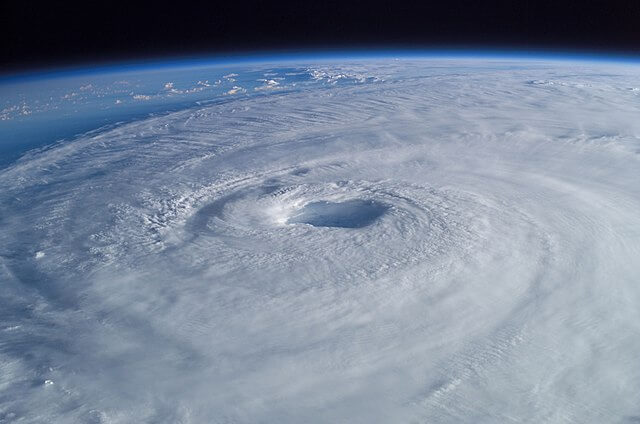
A recent study suggests that the intensifying strength of hurricanes, fuelled by the climate crisis, warrants the creation of a new classification: “category 6” storms.
Researchers argue that this extension, beyond the existing 1 to 5 scale, is necessary to account for hurricanes with sustained winds exceeding 192mph, a phenomenon increasingly observed due to ocean and atmospheric warming.
Michael Wehner from the Lawrence Berkeley National Laboratory likens winds of 192mph to speeds surpassing those of most Ferraris, emphasising the difficulty in conceptualising such force.
“192mph is probably faster than most Ferraris, it’s hard to even imagine”.
Collaborating with James Kossin of the University of Wisconsin-Madison, Wehner proposes this new category in the Proceedings of the National Academy of Sciences, aiming to augment the Saffir-Simpson hurricane scale.
“Being caught in that sort of hurricane would be bad. Very bad.”
Originally devised in the 1970s by Herbert Saffir and Robert Simpson, the Saffir-Simpson scale currently classifies hurricanes based on sustained maximum wind speeds, ranging from category 1 (74mph or more) to category 5 (157mph or more). While category 5 encompasses storms like Hurricane Katrina and Hurricane Maria, recent catastrophic events like Typhoon Haiyan and Hurricane Patricia surpass even these extremes, underscoring the necessity for a category 6 designation.
“There haven’t been any in the Atlantic or the Gulf of Mexico yet but they have conditions conducive to a category 6, it’s just luck that there hasn’t been one yet,” said Wehner. “I hope it won’t happen, but it’s just a roll of the dice. We know that these storms have already gotten more intense, and will continue to do so.”
Although the total number of hurricanes hasn’t risen due to the climate crisis, the intensity of major storms has surged over the past four decades. A hotter ocean, coupled with a warmer, moisture-laden atmosphere, provides the conditions for hurricanes to rapidly intensify, resulting in increasingly devastating impacts.
While the Saffir-Simpson scale focuses on wind speeds, hurricanes’ real dangers often stem from severe rainfall and coastal flooding. Wehner acknowledges the imperfections of the scale but argues that a category 6 designation would emphasise the heightened risks associated with the climate crisis.
“Our main purpose is to raise awareness that climate change is affecting the most intense storms,” he said.
This proposal aligns with recent adjustments made to other systems reflecting modern environmental challenges. Australia’s meteorological bureau introduced a new colour to its weather maps to denote extreme heat, while the US Coral Reef Watch program added three new alert categories to address rising heat stress on coral reefs.
Despite these considerations, there’s no immediate indication that hurricanes will be officially classified as category 6. The US National Hurricane Center has yet to respond to inquiries regarding the study. However, the growing body of evidence suggests a pressing need to adapt our systems to reflect the escalating threats posed by climate change.
——————————————————————————
At Natural World Fund, we are passionate about stopping the decline in our wildlife.
The decline in our wildlife is shocking and frightening. Without much more support, many of the animals we know and love will continue in their decline towards extinction.
When you help to restore a patch of degraded land through rewilding to forests, meadows, or wetlands, you have a massive impact on the biodiversity at a local level. You give animals a home and food that they otherwise would not have had, and it has a positive snowball effect on the food chain.
We are convinced that this is much better for the UK than growing lots of fast-growing coniferous trees, solely to remove carbon, that don’t actually help our animals to thrive.
This is why we stand for restoring nature in the UK through responsible rewilding. For us, it is the right thing to do. Let’s do what’s right for nature!
Donate today at https://naturalworldfund.com/ and join in the solution!

